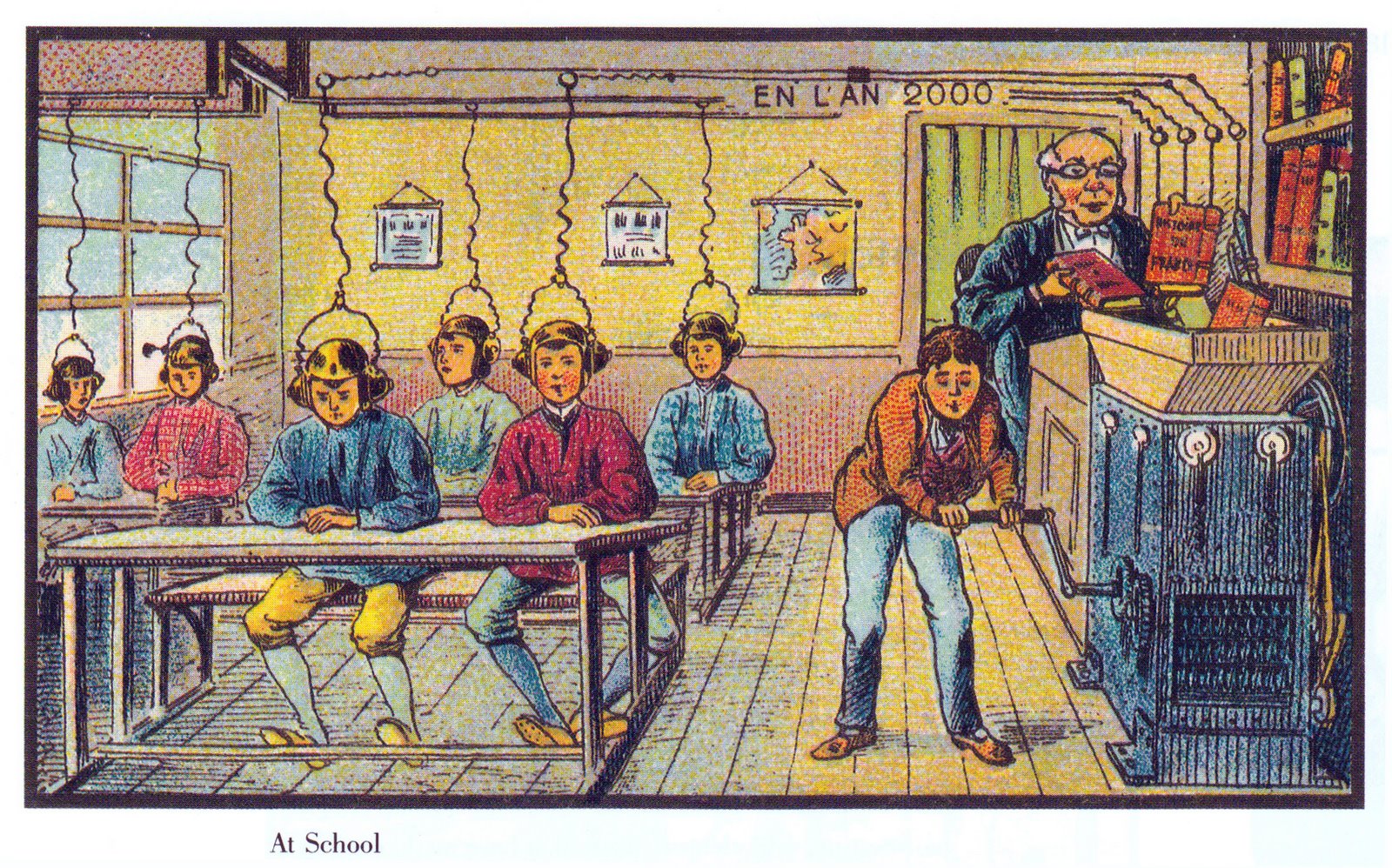 |
| [copyright expired] |
The picture is an exaggeration I hope, but you have probably been in lessons where you are just expected to absorb the information. This is called passive learning and it is not very effective.
In most of the sessions that you take part in at college you will be asked to 'do' something, i.e. actively learn. So,
- what exactly is active learning and how does it help you?
- what are the strategies that teachers use for active learning?
- what strategies can you use to develop your own active learning skills?
Active learning
Active learning is any learning activity where you doing something yourself which helps you to understand the learning outcomes of the session. When active methods are compared with traditional methods they produce an improvement of up to a grade and a half. In GCSE terms that would be a C grade to a good B, or possibly an A grade. (Hattie, 2008) (Petty, 2009)Teaching Strategies - what do teachers do?
Tutors will use a variety of active learning methods to help you understand the session topic. Here are some of the most common strategies used.Asking questions
Some students think that tutors ask questions to 'test' them, pick on them, or check if they are paying attention. However, the main reason for asking questions is to get you to think about [actively learn] the topic. It doesn't necessarily matter if you can't answer or can only get the answer partly correct when you are asked a question for the first time. What matters most is that you are trying to make sense of the topic.
Group discussions
Discussing a topic in groups helps you process the information with other learners. You may be able to help others in your group by explaining a point they don't understand - that will also help your learning. You will also be able to get used to using any new vocabulary that has been introduced.
'Doing' activities
 |
| https://upload.wikimedia.org/wikipedia/commons/9/94/Wikipe-tanCrazy.gif |
These are just some examples of strategies a teacher will use to help you gain a better understanding of the topic. As long as you are doing anything other than listening, that is active learning which will improve your achievement.
Learning strategies - what can you do?
| http://www.teachit.so/activelearning.htm |
If you look at the chart again you can see that reading is effective if you turn it into an active learning activity. 'Doing' something while you are reading, could increase your ability to remember the information by up to 90%.
Sometimes sessions are naturally tutor led. For example, you might be asked to read something from a text book, listen to the tutor giving you information, or you might be asked to watch a video. These are all passive learning activities which you need to switch to active learning. Here are some tips:
Do
- Write down at least 3 questions you can ask about what you have read, or after the lecture/video has finished
- Translate the information into your own words and summarise.
- Organise your notes in some form (it could be as a mind map, a flowchart, diagrams or lists)
- Review your notes while the text or lecture is still fresh in your memory. Fill in any gaps you see and
- Write a blog post to reflect on the activity.
- Click here for some more note making ideas for before, during and after a class activity.
 |
| take the information and make it yours |
Don’t
- Don’t try to write every word – select the major points and important information
- Don’t write complete sentences, streamline with abbreviations and symbols, organise – leave out the small connecting words (such as was, the, this).

No comments:
Post a Comment